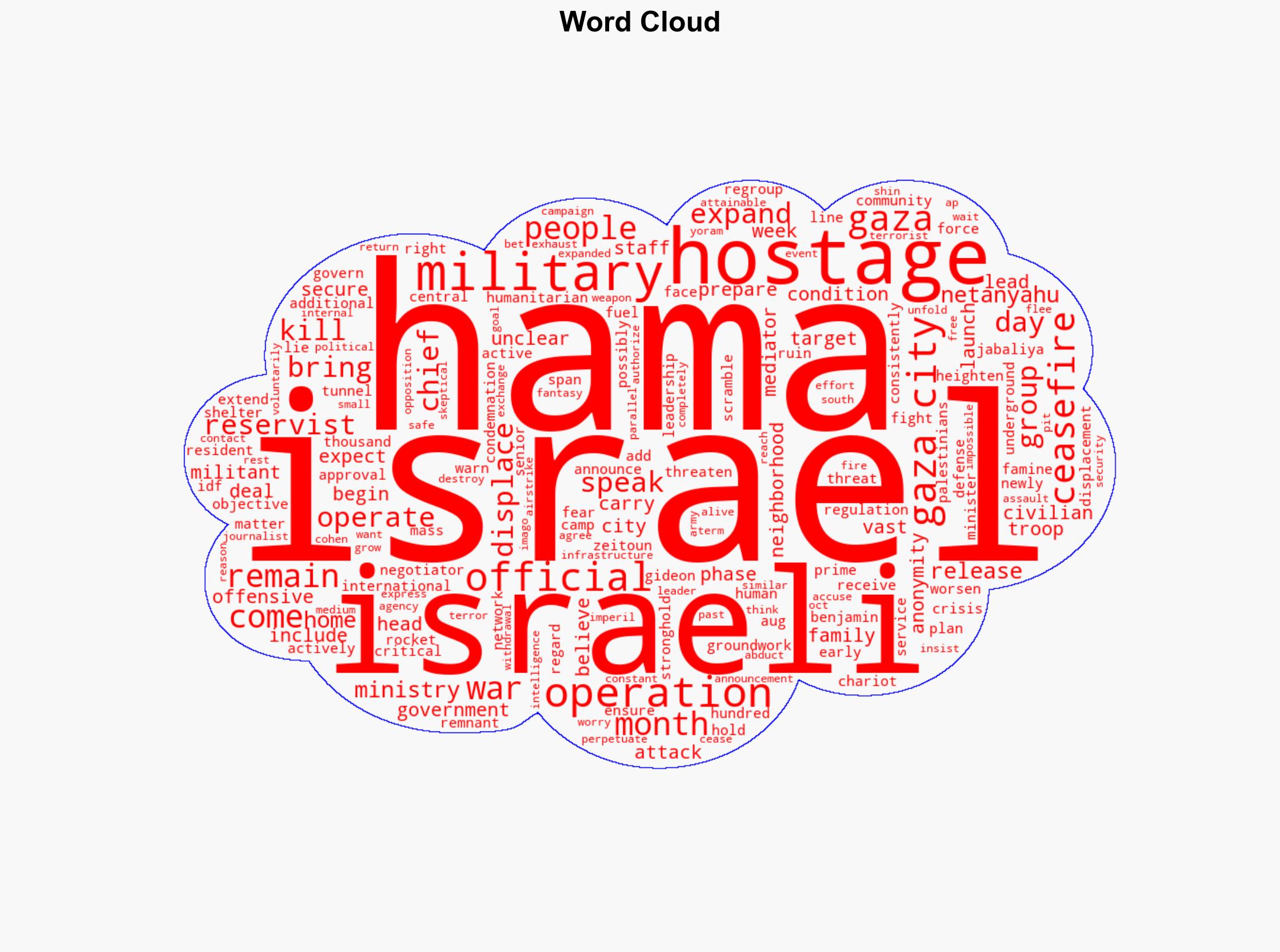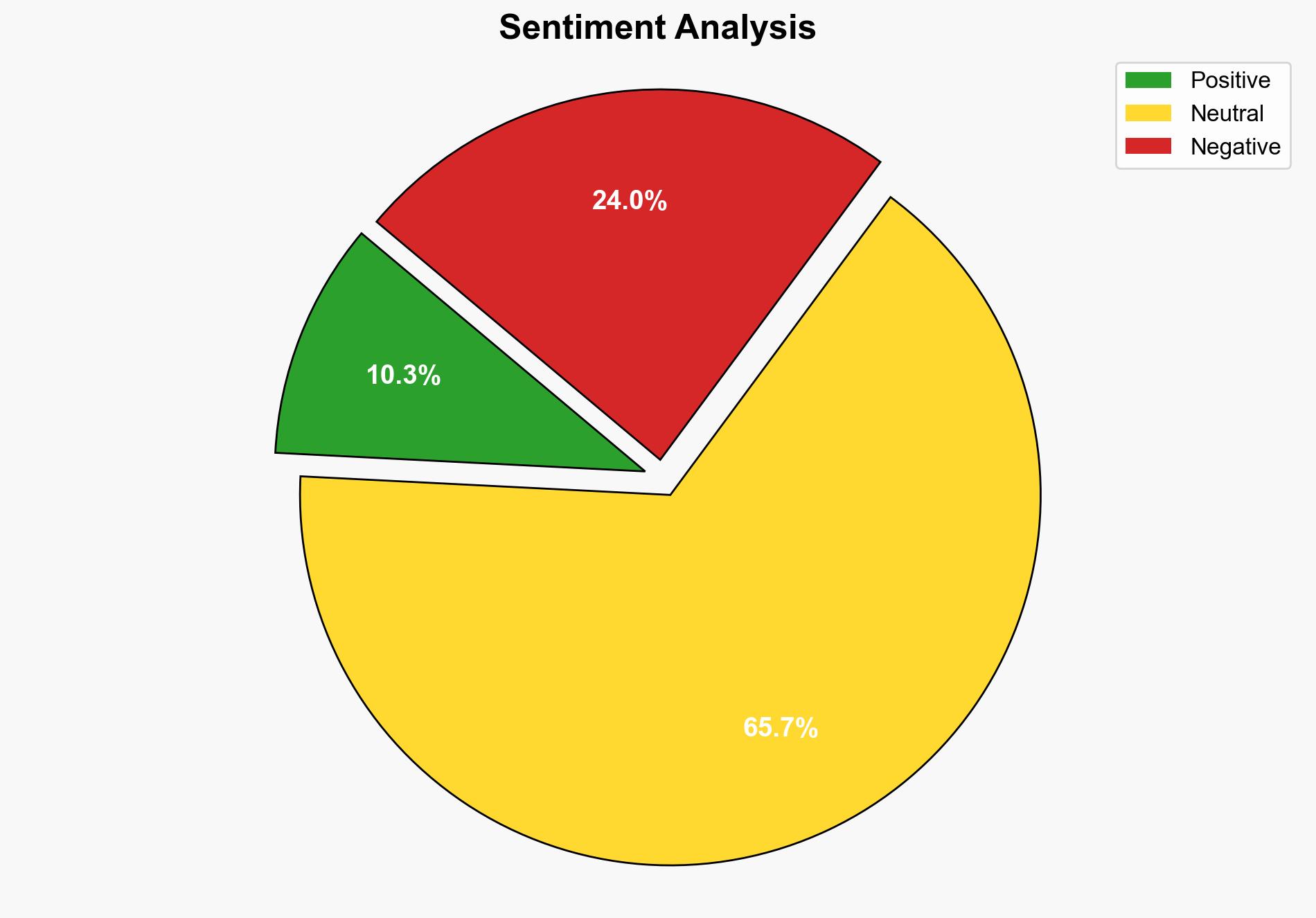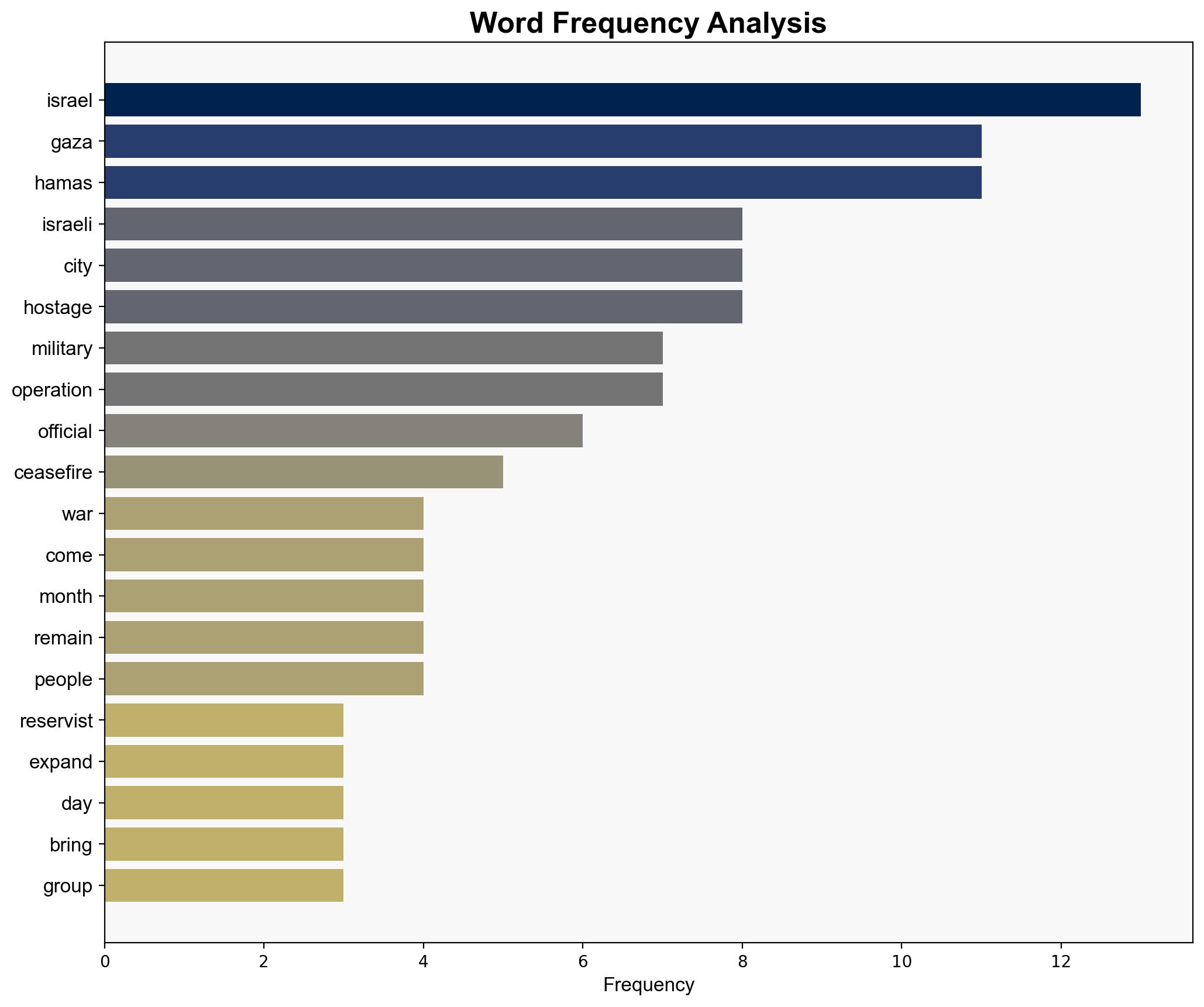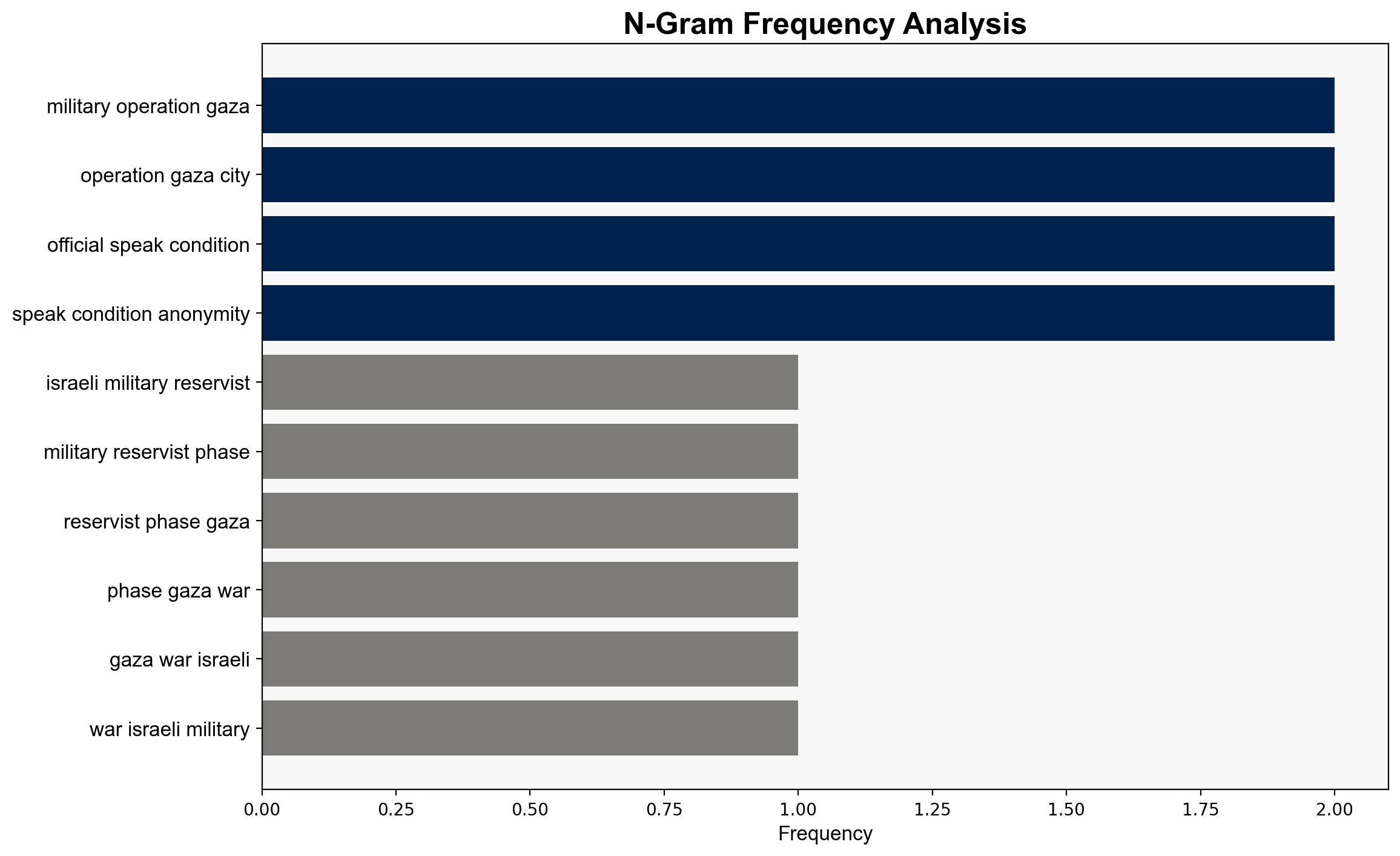Israeli military says 60000 reservists called up for next phase of Gaza war – CBS News
Published on: 2025-08-20
Intelligence Report: Israeli military says 60000 reservists called up for next phase of Gaza war – CBS News
1. BLUF (Bottom Line Up Front)
The Israeli military’s call-up of 60,000 reservists suggests an imminent escalation in Gaza operations, potentially aimed at dismantling Hamas infrastructure. The most supported hypothesis is that Israel seeks to intensify military pressure to secure strategic objectives, including hostage release and neutralization of Hamas capabilities. Confidence level: Moderate. Recommended action: Monitor developments closely, prepare for humanitarian response, and engage in diplomatic efforts to mitigate escalation.
2. Competing Hypotheses
Hypothesis 1: The call-up of reservists is primarily aimed at intensifying military operations to dismantle Hamas’s military infrastructure and secure the release of hostages.
Hypothesis 2: The mobilization is a strategic maneuver to exert pressure on Hamas and international mediators to agree to a ceasefire on terms favorable to Israel.
3. Key Assumptions and Red Flags
Assumptions:
– Hypothesis 1 assumes Israel has the capability and intent to significantly degrade Hamas’s military infrastructure.
– Hypothesis 2 assumes that international pressure and negotiations can influence Hamas’s decision-making.
Red Flags:
– Reports of humanitarian crises and displacement may exacerbate international condemnation, complicating Israel’s strategic objectives.
– Skepticism from Israeli intelligence officials about the feasibility of completely destroying Hamas suggests potential overestimation of military objectives.
4. Implications and Strategic Risks
– Escalation in military operations could lead to increased civilian casualties and further displacement, heightening international scrutiny and potential sanctions.
– Prolonged conflict risks destabilizing regional geopolitics, potentially drawing in neighboring countries or non-state actors.
– Economic impacts could arise from disrupted trade routes and increased defense spending.
5. Recommendations and Outlook
- Engage in diplomatic channels to advocate for humanitarian corridors and ceasefire negotiations.
- Prepare for potential refugee influx and coordinate with international aid organizations.
- Scenario-based projections:
- Best Case: Successful negotiations lead to a ceasefire and hostage release.
- Worst Case: Full-scale conflict results in significant regional destabilization.
- Most Likely: Protracted military engagement with intermittent ceasefire attempts.
6. Key Individuals and Entities
– Benjamin Netanyahu
– Yoram Cohen
– Hamas leadership
7. Thematic Tags
national security threats, counter-terrorism, regional focus, humanitarian crisis




